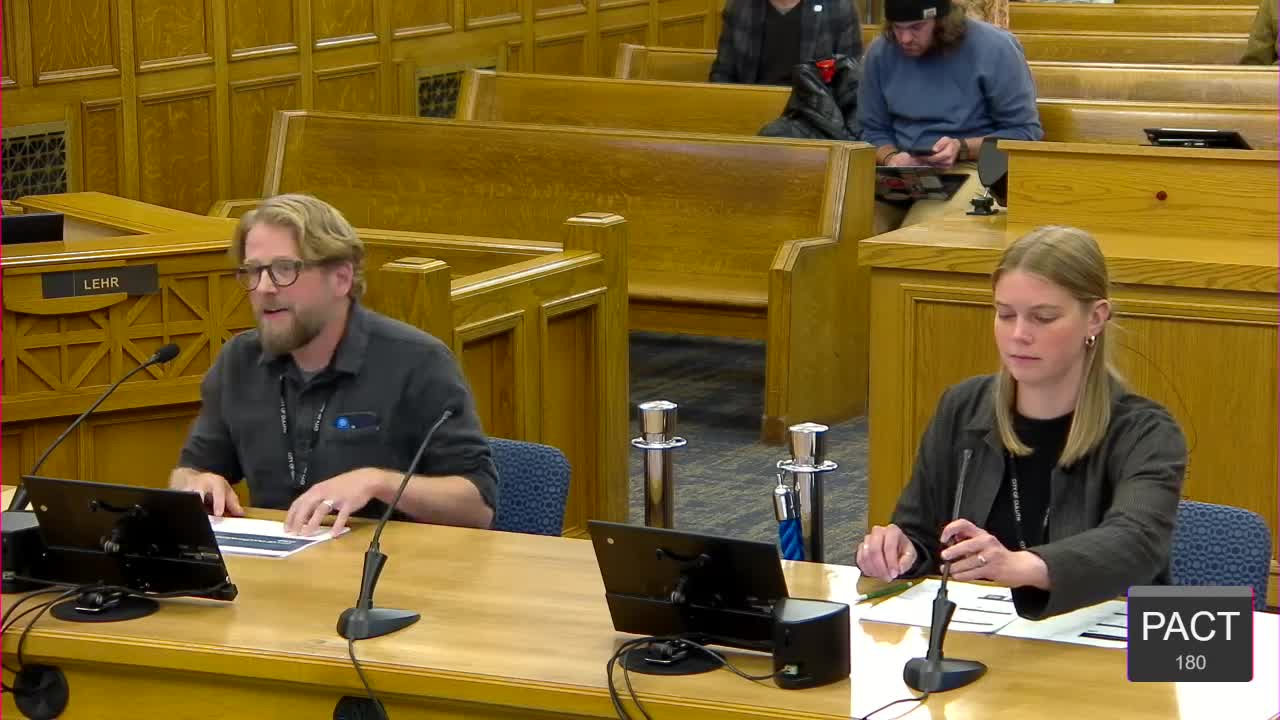City outlines Housing Trust Fund loans, new MHFA grant and planned affordable housing pool
Get AI-powered insights, summaries, and transcripts
Subscribe
Summary
City housing staff told the council the Housing Trust Fund has issued 17 loans totaling $5.5 million and supported roughly 135 housing units since its 2021 creation, and outlined a new MHFA grant and a planned dedicated affordable‑housing loan product.
Senior housing developer Tom Church and housing planner Lehi Fancook briefed the Duluth City Council on Oct. 14 about the city’s Housing Trust Fund program, its activity since 2021 and plans to expand a dedicated affordable‑housing loan product.
Program background: The city established the Housing Trust Fund by ordinance in 2021 and seeded it with $4,000,000 from the general fund. City staff said the fund also receives annual levy contributions and a portion of certain permit fees. Church told the council the fund’s nominal value has grown to about $4,700,000 (seed plus contributions, less forgiveness) but that the liquid fund balance available today is “just over $2,000,000.”
Loans and results: Housing staff said they have issued 17 loans totaling $5,500,000 that supported about 135 housing units citywide; 9 loans have been repaid, revolving roughly $2,700,000 back into the fund. Staff said 12 of the 17 loans (about 70 percent) supported affordable housing and that affordability incentives include lower interest rates (down to as low as 0% for deep affordability) and partial loan forgiveness up to $50,000 for qualifying projects.
Success stories and partners: Staff highlighted conversions of fire‑damaged properties and projects with community land trusts as examples of the fund in action. Church said the city administers the program in partnership with the Duluth HRA, which handles draw requests and loan administration once projects are approved.
New funding and product: Staff said Duluth received a $225,000 grant from the Minnesota Housing Finance Agency (MHFA) to support a new dedicated affordable‑housing loan program within the trust fund. They expect to seek additional contributions (including a planned request to DITA) and to blend city funds with a LISC program (about $3,000,000) to create a combined financing product. Staff projected the total fund value could reach roughly $6.0–$6.5 million in 2026 with the blended products and new grants.
Council and partner remarks: Councilors thanked staff and asked about consultation with other cities and experience with the program. Tom Church said Duluth was an early adopter in Minnesota; LISC Executive Director Samir Sheikh described the partnership with the city and noted larger leveraged projects, such as the Nettleton school redevelopment, that combined multiple funding sources.
Next steps: City staff said they will return to council in early November with proposed ordinance amendments to simplify program guidelines and to formally create the dedicated affordable‑housing loan product, and will continue coordinating with LISC and other partners.
